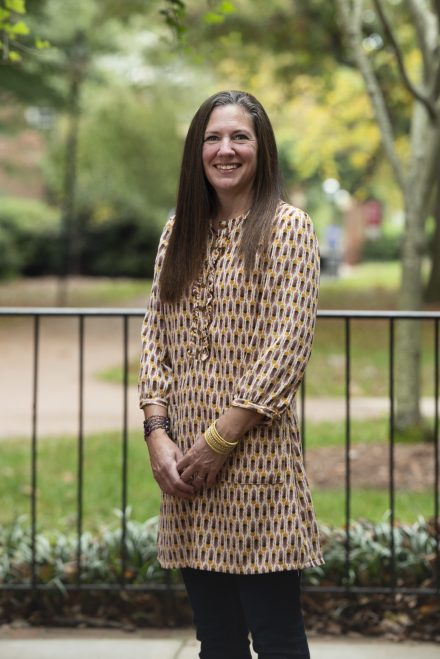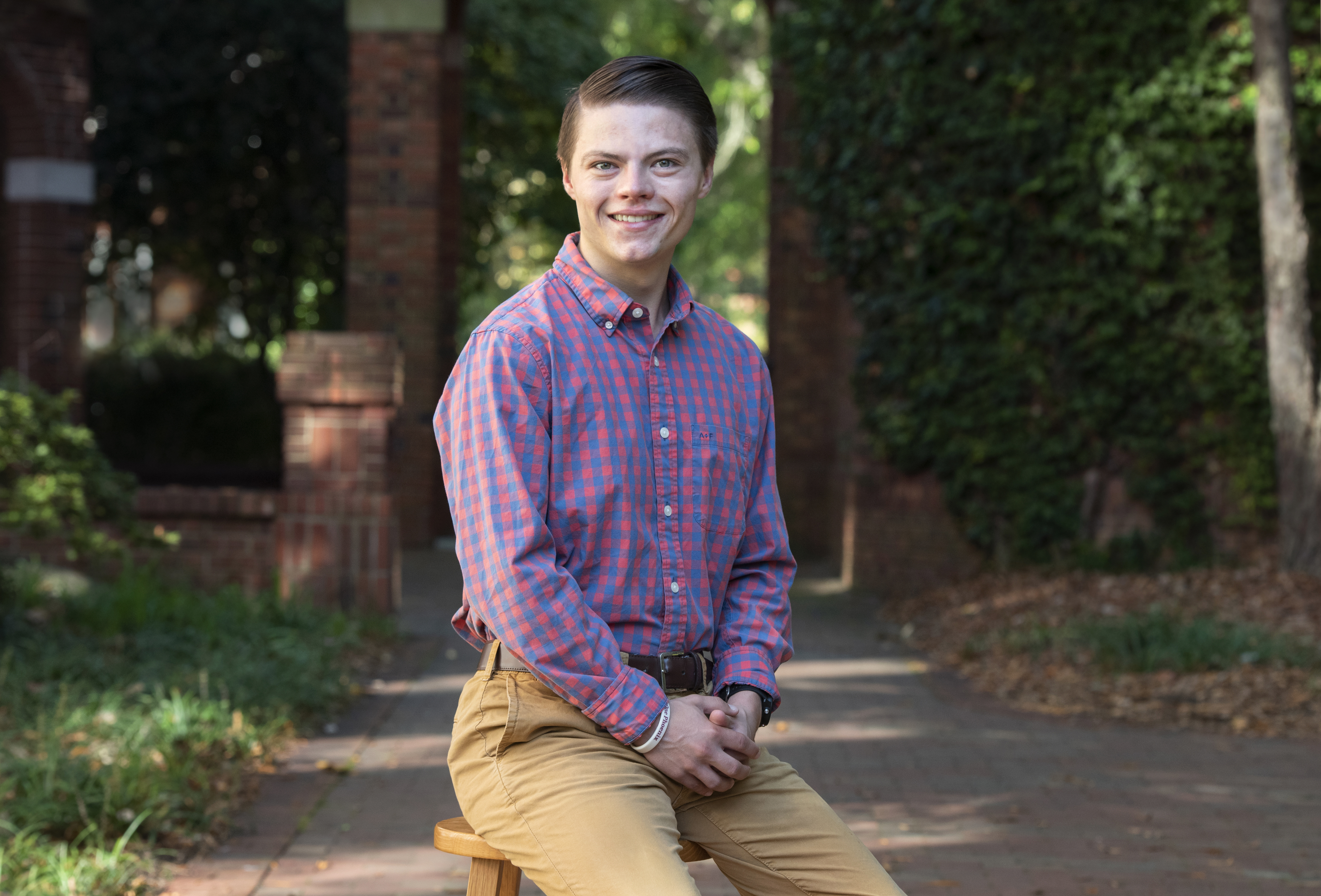Griffin Barriss ’21, under the mentorship of Senior Lecturer in Public Health Studies Amanda Tapler, is conducting research with the Comprehensive Rural Health Project on a program addressing gender-based issues in Jamkhed, India.
A seven-hour bus ride can leave one with plenty of time to think. For Griffin Barriss ‘21, those seven hours were just enough to change the course of his Elon journey.
It was January 2019, and Barriss was on a bus to Mumbai from Jamkhed, India, where he and a group of Elon students had just spent several weeks getting first-hand experience in global public health. The class worked closely with the non-government organization the Comprehensive Rural Health Project (CRHP) in India to help confront public health issues as a part of Senior Lecturer in Public Health Studies Amanda Tapler’s Winter Term Public Health Practicum.
As the class began the trip home, it was on that bus ride to the Mumbai airport that Barriss realized the experience in Jamkhed could translate into a meaningful Lumen Prize research project.
“I was kind of like ‘this could actually work out,’ so I immediately reached out to Professor Tapler,” Barriss said. “We had six weeks to go pedal to the metal.”
Barriss worked with Tapler to prepare a proposal that would prove to the Lumen Prize selection committee that he had the knowledge, plan and passion to earn the university’s most prestigious award for undergraduate research.
The Lumen Prize is a highly competitive award, given to rising juniors, that includes $20,000 for research and affords scholars the opportunity to work closely with a faculty mentor who has expertise in the field of their chosen research topic. The two-year research projects often produce conference presentations and publications.
Because of the strength of his proposal, the Lumen Prize selection committee chose Barriss as one of 15 members of the Lumen Scholar Class of 2019.
“Being selected as a Lumen Scholar was an incredible and humbling experience that has unlocked countless opportunities to reach my full potential at Elon,” said Barriss, now in his senior year.

With the Lumen Prize secured and Tapler as his faculty mentor, Barriss began a research project that looked into one of the CRHP’s key initiatives, the Adolescent Girls Program (AGP). The six-month AGP teaches Indian girls, ages 12 to 18, valuable lessons in health and social justice to inspire them to become agents of change in their communities. The program teaches girls about women’s health, public health, the importance of staying in school and other lessons to combat larger gender-based issues in the region.
The CRHP had been wanting to learn more about the impact of the AGP on its graduates, their families and their communities, but without the necessary time or resources to conduct peer-reviewed research, the organization turned to Tapler for assistance. Specifically, CRHP Director Ravi Arole wanted to know if Barriss could help.
“I think that’s a really important piece to note because international global research can go wrong in many, many ways,” said Tapler. “And to have the director have a conversation and say ‘I’d really like to work with Griffin on a new project,’ is special.”
Barriss and Tapler returned to Jamkhed in January 2020 to begin collecting data for the research project. They worked closely with the CRHP research team to design questions and interview AGP graduates about life after the program. CRHP staff conducted each interview and provided Barriss with data to conduct an analysis.
The research was in motion and Barriss had planned to return to Jamkhed that summer to check in on the process, but with the global COVID-19 pandemic at its peak, a return trip to India became too dangerous. Instead of being back on the ground in India, he turned to phone calls and virtual meetings to continue the research project.
“He’s been amazing during a very stressful time for everybody,” Tapler said. “He’s been able to pivot during COVID-19 and continue the process. I think some students might not have handled it as calmly as Griffin did.”
Not only did Barriss continue to progress through his Lumen Prize research during the pandemic, he found a way to help the United States as it battled the coronavirus. While back home in Massachusetts and awaiting data for his research, Barriss took on an internship with The Ventilator Project, which launched in March to provide more cost-effective, scalable ventilators to hospitals facing shortages across the country.
Although the pandemic upended his summer plans, the crisis served as a particularly valuable lesson for the public health studies and international and global studies double major.
“I think COVID-19 showed us and the world that we are a lot more interconnected than it seems,” Barriss said. “What started as a limited outbreak in rural China is now dictating how I go to class and see my friends. I think it strengthens the idea that collaboration across borders and working with international communities is not a waste of resources. We need to work together.”
The ability to persevere during such a challenging time is what Tapler says is a testament to the exceptional student and person Barriss has become since he first took her Introduction to Public Health course as a first-year student in 2017. Tapler says that growth is what has helped Barriss successfully conduct his Lumen Prize research three years later.
“He recognizes that we are all experts in our own lived experiences,” Tapler said. “I think his value of wanting to sit back and really listen and learn about others and their differences has enriched both his personal and academic life, so you see that in the work that he has done.”
Barriss is continuing to analyze data for his Lumen Prize research as the project reaches its final phases. He wants this experience marks the beginning of a career that allows him to one day use his passion for public health to make a positive impact in the world, whether domestically or internationally.
In the meantime, he hopes his research with Tapler and CRHP will open doors for future Elon students interested in global health.
“Hopefully it will allow other students to see that CRHP provides an avenue for research and get more people involved so this can become a recurring partnership and continue to help the organization,” he said.



